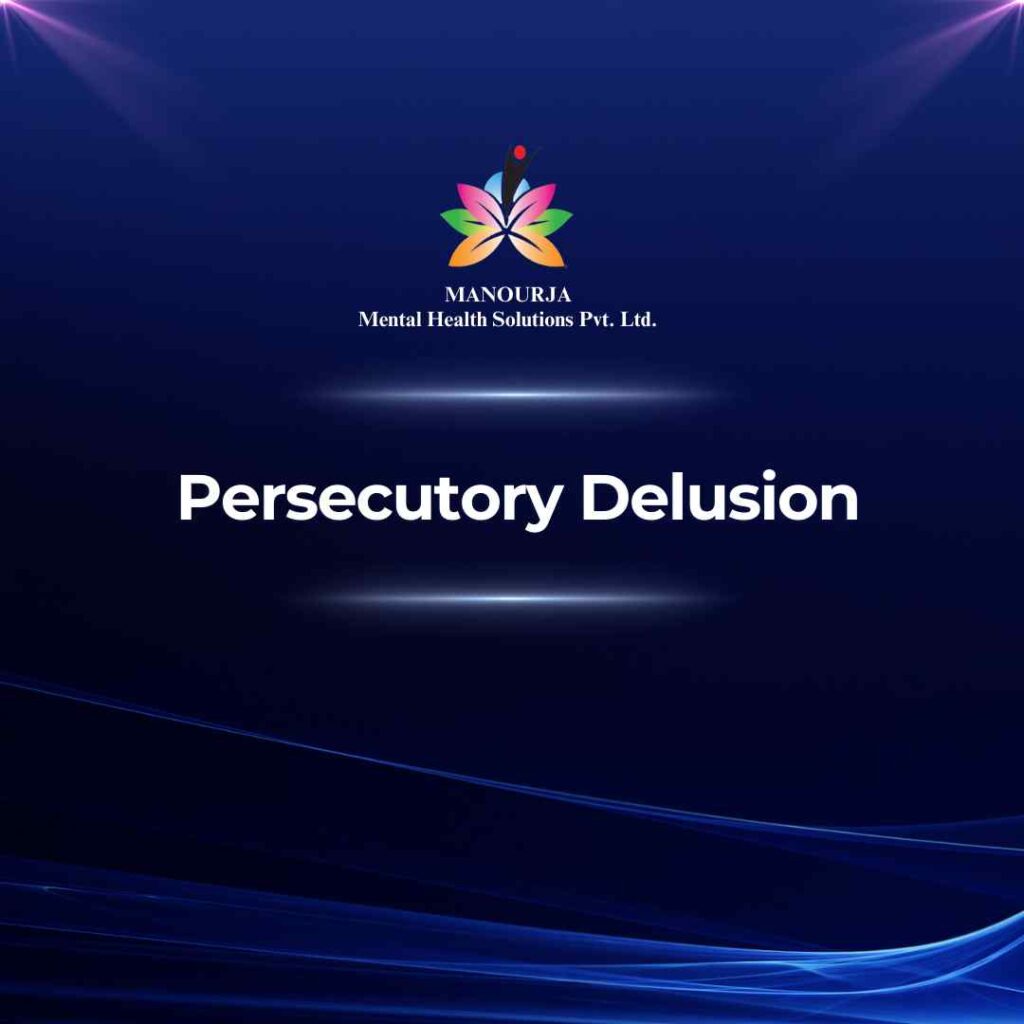Persecutory Delusion

A “persecutory delusion” is a false belief held by an individual that they are being targeted, harassed, conspired against, or persecuted by others. These beliefs are typically unfounded and not based on reality, but individuals with persecutory delusions firmly believe in their validity despite lack of evidence. Persecutory delusions can cause significant distress, anxiety, and impairment in daily functioning.
Persecutory Delusion as a Sign and Symptom of Mental Illness
Persecutory delusions are a common symptom of several psychiatric disorders, particularly those involving psychosis. They reflect a distorted perception of reality and can lead to changes in behavior, social withdrawal, and defensive or hostile reactions towards others.
Mental Illnesses with Persecutory Delusions as Symptoms
Persecutory delusions can occur in the following mental health disorders:
- Schizophrenia: Persecutory delusions are a hallmark feature of schizophrenia, where individuals may believe that they are being followed, spied on, or plotted against by unknown forces or individuals. These beliefs can be elaborate and deeply entrenched, leading to fear, mistrust, and isolation.
- Delusional Disorder: This disorder is characterized by persistent delusions that are not accompanied by other symptoms of schizophrenia. Individuals with delusional disorder may have persecutory delusions centered around themes of persecution, jealousy, or being conspired against.
- Bipolar Disorder: During manic or mixed episodes of bipolar disorder, individuals may experience persecutory thoughts or delusions, often related to heightened arousal and paranoia.
- Paranoid Personality Disorder: While distinct from psychotic disorders, individuals with paranoid personality disorder may have longstanding and pervasive mistrust, suspicion, and belief that others are malevolent or intend harm.
- Major Depressive Disorder with Psychotic Features: In severe cases of depression with psychotic features, individuals may develop persecutory delusions alongside other symptoms such as hallucinations or disorganized thinking.
Managing and Treating Persecutory Delusions
Treatment for persecutory delusions focuses on reducing symptoms, improving insight, and enhancing overall quality of life:
- Antipsychotic Medications: Medications such as antipsychotics are often prescribed to reduce the intensity of delusions and other psychotic symptoms.
- Therapy: Cognitive-behavioral therapy (CBT), particularly CBT for psychosis (CBTp), can help individuals challenge irrational beliefs, improve reality testing, and develop coping strategies to manage distress associated with persecutory delusions.
- Supportive Interventions: Providing education about the nature of persecutory delusions, involving family members or caregivers in treatment, and promoting a supportive environment can improve treatment adherence and outcomes.
- Community Support: Support groups and community mental health services can provide additional resources and assistance for individuals coping with persecutory delusions.
Recognizing persecutory delusions as a symptom of an underlying mental health condition is crucial for accurate diagnosis and effective treatment planning. Addressing these delusions through comprehensive and individualized treatment approaches can help individuals manage symptoms, reduce distress, and improve overall well-being.
At MANOURJA, we believe in the transformative power of counseling. Our experienced therapists offer a safe and supportive space where you can explore your thoughts, emotions, and challenges. Through personalized counselling sessions, we’ll work together to develop coping strategies, build resilience, and achieve lasting positive change. Discover the path to a healthier, happier you with MANOURJA counselling services.
MANOURJA Rehabilitation Services
At MANOURJA, we’re dedicated to helping you in rebuild your life, after difficult times. Our rehabilitation services focus on understanding what you need to move forward, whether you’re recovering from addiction, trauma, or any psychological – social challenges. We create personalized plans, that are all about helping you, regain your strength and find hope again. With a caring team by your side, you’ll have the support to make real progress and take steps toward a brighter, healthier future.
